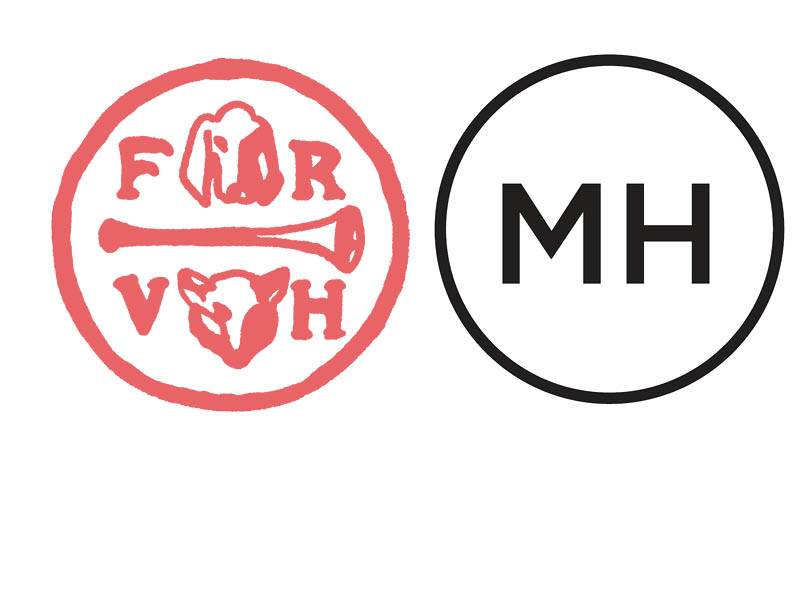COMMONLY USED TERMS
AWAY - A fox has “gone away” when he has left covert. Hounds are “away” when they have left covert on the line of a fox.
BABBLE - To give tongue on scent other than fox or coyote, or no scent at all, or on a scent too faint to follow.
CAP - 1. (n.) the headgear reserved for the MFH and staff. 2. (v. or n.) To “pass the hat” amongst the field. Visitors may be “capped” or asked to pay a “capping fee”. A hunt may have a “cap” for some particular purpose such as paneling, charity, etc.
CAST - (n.) A planned move in searching for a line (trail) or (v.) to make a cast. Hounds may cast themselves, or the Huntsman may cast them.
CHECK - (n.) An interruption of the run caused by hounds losing the line. (v.) Hounds check when they lose the line temporarily.
COLORS - 1. The distinctive colors which distinguish the uniform of one hunt from another. 2. To be awarded or given the colors is to be given the right to wear them and the hunt buttons.
COUPLE - 1. (n.) Two hounds, any sex, for convenience in counting. 2. (v.) A device for keeping two hounds attached to each other for convenience in control or training. 3. (v.) To attach two hounds together by use of couples.
COVERT - (pronounced “cover”) A patch of woods or brush where a fox might be found.
CRY - (n.) The sound given by hounds when hunting. E.g. “The pack, in full cry.”
CUB - A young fox.
CUBHUNTING - Early hunting before the formal season.
DOUBLE - (v.) To “double the horn” is to blow a series of short sharp notes. Signifies a fox is afoot. The “gone away” note is a form of “doubling the horn”.
DRAW - (v.) To search for a fox in a certain area.
EARTH - Any place where a fox goes to ground for protection, but usually a place where foxes live regularly - a fox den.
FEATHER - A hound “feathers” when he indicates, by actions rather than voice, that he is on a line or near it. The stern is waved, and activity is concentrated and intensified.
FIELD - The group of people riding to hounds, excluding the MFH and staff.
FIELD MASTER - The person designated by the MFH to control the field.
FIXTURE - The time and place of the meet, or assembly of the hunt.
GROUND - “To go to ground”. To take shelter (usually underground) e.g. “The fox went to ground in the main earth east of the swamp”.
HEAD - (v.) To head a fox is to cause it to turn from its planned direction of travel. This usually causes a check, and is not recommended.
HEEL - (adv.) Backwards. Hounds following the line the wrong way are running “heel” (also called “counter”).
HOLD HARD - “Stop please.” If used twice to the same individual, it probably means “Stop please, damn you.”
HONOR - A hound “honors” when he gives tongue on a line which another hound has been hunting.
HOUNDS - Hounds are hounds, not dogs. Hounds are for convenience counted in couples, regardless of sex. A male hound is known as a dog hound or dog. A dog which is not a hound is known as a cur dog, regardless of pedigree. Likewise, a female hound, no matter how exemplary, is known as a bitch.
LARK - To jump fences unnecessarily when hounds are not running, or on non-hunting days.
LINE - The trail of the fox.
MARK - (To ground) a hound marks when he indicates that a fox has gone to ground.
MASTER - The MFH. The person in command of the hunt in field and kennels.
MEET - The assembling of the hunt for a day’s sport. E.g. “The meet tomorrow is at...” or “Hounds meet tomorrow at......”
OPEN - A hounds is said to “open” when he first gives tongue on a line.
PANEL - (1.) The portion of any jumpable fence between two posts; (2.) A jumpable portion built into a wire fence.
POINT - (1.) the straight line distance made good in a run e.g. “That was a six mile point, but twelve miles as hounds ran.” (2.) The location to which a Whipper-In is sent to watch for a fox to go away.
RATCATCHER - Informal hunting attire. Correct for cubbing.
RIOT - Anything that hounds might hunt that they shouldn’t.
RUN - (n.) A period during which hounds are actually hunting on the line of a fox. Usually implies a gallop for the field, as opposed to a “hunt in covert after a twisting fox."
SPEAK - To give tongue. (Usually of a single hound, e.g. “I heard old Homer open, and he spoke for some time before the others got to him.”)
STAFF - The Huntsman and Whippers-In.
STERN - Tail of a hound.
TONGUE - 1. (n.) Cry. A hound “gives tongue’ when he proclaims with his voice that he is on a line. 2. (v.) To give tongue.
VIEW - (v. or n.) See (or sight of) the fox.
VIEW HOLLOA - The cry given by a staff member on viewing a fox.
WALK - Puppies are “sent out at walk” in the summer and fall of their first year, preferably on farms where they learn about chickens, etc.
WARE - A caution (1.) to riders, e.g. “ware wire.” (2.) To hounds, e.g. “Ware riot.” Usually pronounced “war.” An abbreviation of beware.
WHELP - (n.) A young puppy (v.) To bear puppies, e.g. “That hound was whelped 3/6/59.”
WHIPPER IN - A staff member who assists the Huntsman in the control of hounds.
BIBLIOGRAPHY
Wadsworth, William P. M.F.H.
“Riding to Hounds in America - An Introduction for Fox Hunters.”

